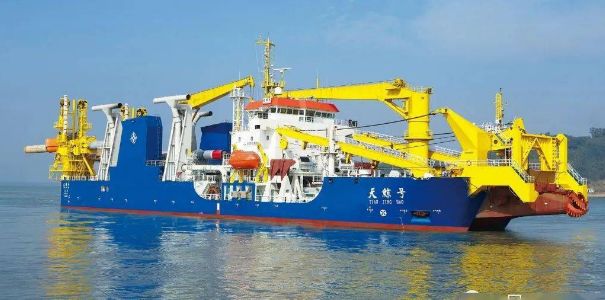Research on Marine carrier equipment technology and industrial development
(5) Advanced material technology
Materials are the basis of ocean carrying equipment. Advanced new materials make ocean carrying equipment have better performance. At present, the advanced materials in the field of Marine carrying equipment include: ultra-large container ships high-strength crack stop thick steel plate, Marine low-temperature steel and polar low-temperature materials, Marine structural acoustic composite materials, drag reduction anti-fouling coatings, composite materials and low-temperature materials.
2. Research cutting-edge technology
The cutting-edge technology of Marine carrier equipment research is mainly related to the intelligence of Marine carrier equipment, aiming to promote the intelligence of equipment and promote the safe and efficient development of the shipping industry.
(1) Intelligent ship technology
The field of intelligent ship technology mainly includes: intelligent navigation control technology, intelligent management technology of energy and power system, intelligent monitoring technology of auxiliary engine safety operation, intelligent monitoring technology of whole ship safety, intelligent monitoring technology of energy saving and environmental protection, intelligent monitoring technology of vibration and noise, intelligent cargo management technology, intelligent ship integrated information system technology.
(2) Additive manufacturing technology
Additive manufacturing technology can not only improve the design of mechanical parts, increase their efficiency and longevity, but also allow related spare parts to be produced on site in different ports around the world. This will improve the company's ability to respond to market demand, reduce maintenance time, and help improve the efficiency of ship operations. Additive manufacturing technology has been applied in the field of rapid prototyping and is gradually being integrated into traditional manufacturing industries such as automotive and aircraft manufacturing. The Navy has already begun testing the technology on some ships to assess its potential for spare parts production.

(3) Advanced sensor technology
(4) Advanced communication technology
The integration of fifth-generation mobile communications (5G), wireless Internet access (Wi-Fi), a new generation of satellites and traditional radio communication networks will make the long-distance transmission of Marine information economical and convenient. Managers or users can access audio, high-definition video, three-dimensional (3D) video in real time in the ship's recording equipment, reducing the need for actual on-board investigations.
3. Future disruptive technologies
Hydrogen fuel power technology is a representative of disruptive technology in the world's ocean transport equipment frontier technology. With true zero emissions, the International Energy Agency (IEA) sees hydrogen as a fuel option for meeting the IMO's 2050 carbon reduction targets for the shipping sector. If the hydrogen fuel power technology can be mature and widely used, it is expected to reshape the form of the Marine transport equipment industry, and have a profound impact on the design, final assembly, supporting and service of Marine transport equipment. In recent years, more and more shipyards, energy companies, and power system suppliers have begun to accelerate the research and development of hydrogen fuel-powered ships, and substantial progress has been made. There are already several ship models powered by hydrogen fuel cells, and many more large-scale projects are under development.
- ABB
- General Electric
- EMERSON
- Honeywell
- HIMA
- ALSTOM
- Rolls-Royce
- MOTOROLA
- Rockwell
- Siemens
- Woodward
- YOKOGAWA
- FOXBORO
- KOLLMORGEN
- MOOG
- KB
- YAMAHA
- BENDER
- TEKTRONIX
- Westinghouse
- AMAT
- AB
- XYCOM
- Yaskawa
- B&R
- Schneider
- Kongsberg
- NI
- WATLOW
- ProSoft
- SEW
- ADVANCED
- Reliance
- TRICONEX
- METSO
- MAN
- Advantest
- STUDER
- KONGSBERG
- DANAHER MOTION
- Bently
- Galil
- EATON
- MOLEX
- DEIF
- B&W
- ZYGO
- Aerotech
- DANFOSS
- Beijer
- Moxa
- Rexroth
- Johnson
- WAGO
- TOSHIBA
- BMCM
- SMC
- HITACHI
- HIRSCHMANN
- Application field
- XP POWER
- CTI
- TRICON
- STOBER
- Thinklogical
- Horner Automation
- Meggitt
- Fanuc
- Baldor
- SHINKAWA
- Other Brands




































































































































